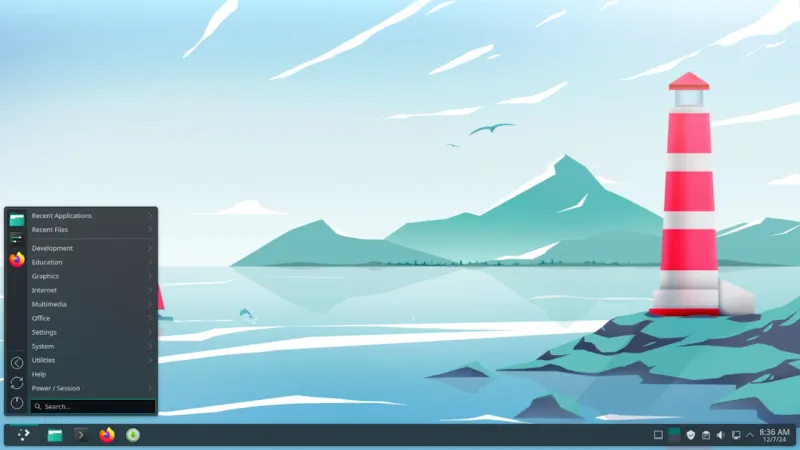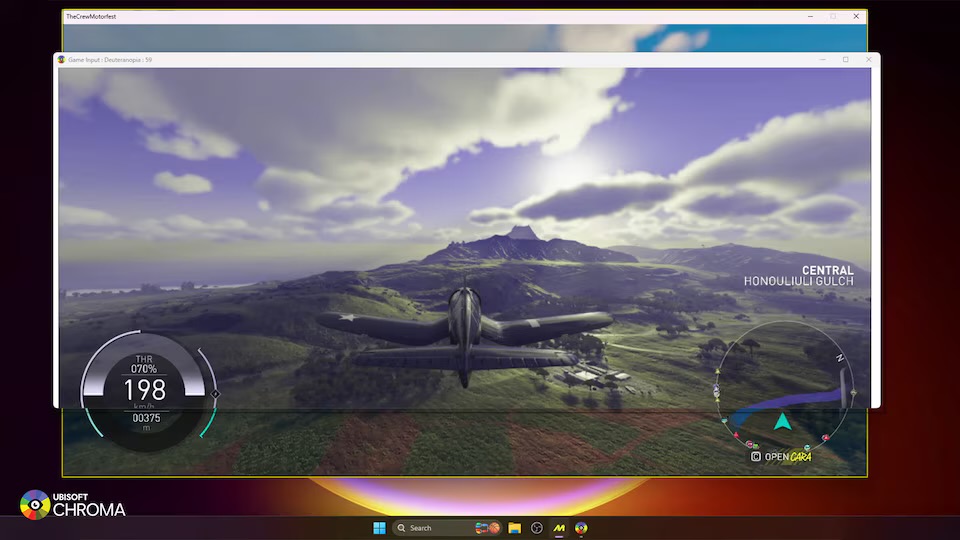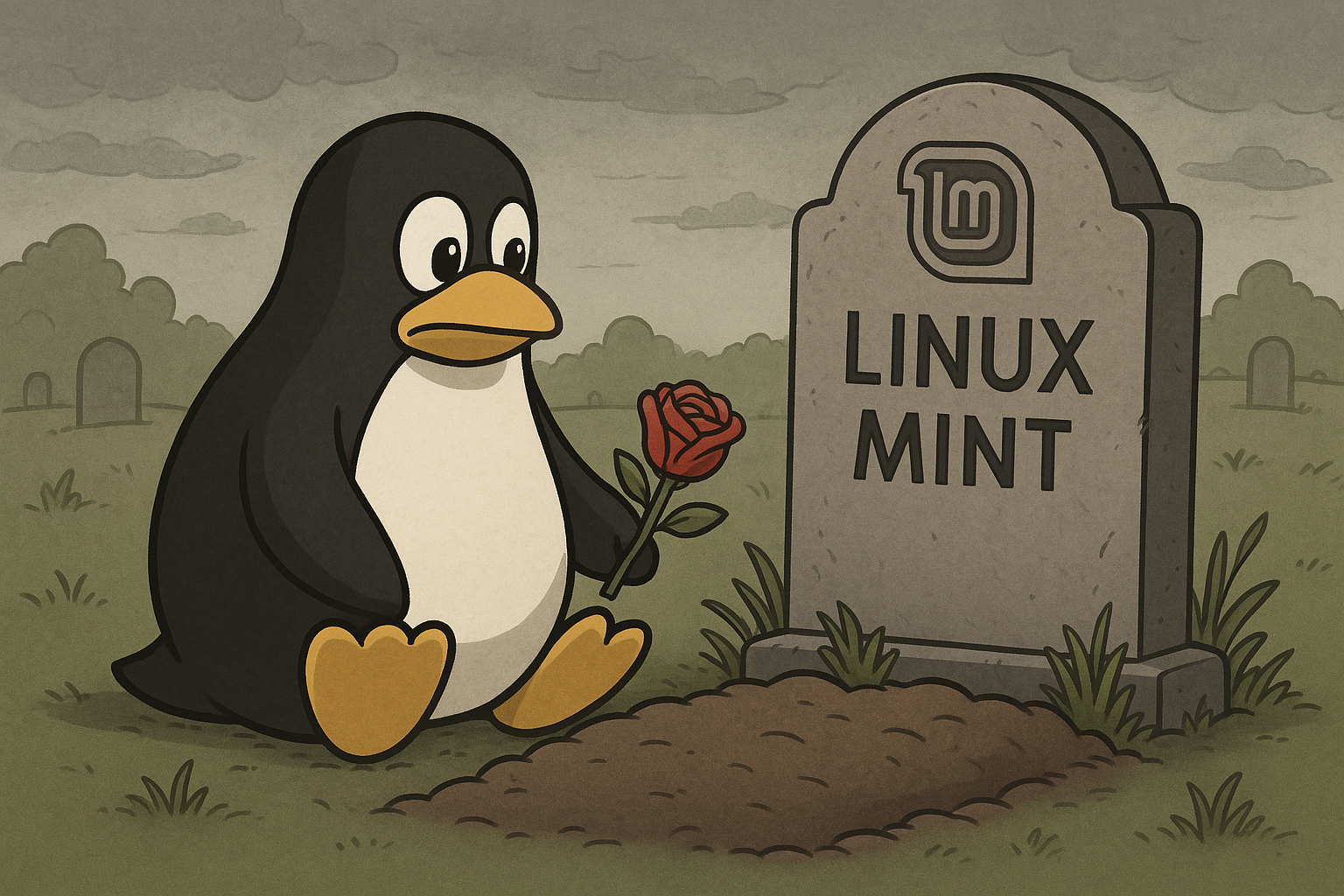
No Linux for old men -- ArcoLinux reaches the end of the line
The ArcoLinux project is winding down after eight years because its project lead is beginning to feel his age.
Announcing the move in a blog post, Erik Dubois says the ArcoLinux community will discontinue its distribution and related projects.

OpenMandriva Lx 6.0 brings KDE Plasma 6 and Proton for running Windows games on Linux
The folks behind OpenMandriva have officially released version 6.0 of their Linux distribution. This is the fixed-point “Rock” release, and not the rolling edition, so it is all about stability rather than chasing the latest experimental packages.
KDE Plasma 6 is the star of the show here, serving as the default desktop environment. Users can choose between X11 or Wayland sessions, but there’s a catch. If you plan to run OpenMandriva Lx 6.0 in VirtualBox, X11 is strongly recommended. The team warns about problems with Wayland on VirtualBox’s emulated GPU, though things work fine on real hardware or in QEMU with KVM. For VirtualBox, don’t forget to set VMSVGA to avoid boot issues.

Install Linux on your old PC to save it from the landfill this Earth Day
Earth Day is tomorrow, and it is a time to reflect on how we treat the planet we all share (until Elon Musk colonizes Mars, at least). While some people mark the day by picking up trash or planting a tree, there’s another simple yet powerful way to help the environment that you might not have considered -- install Linux on your aging computer instead of tossing it in the trash!
Old computers don’t have to die. In fact, most of them still have plenty of life left in them -- if you’re willing to ditch bloated operating systems that no longer support them. That’s where Linux comes in. Unlike Windows 11, which demands modern processors and fairly high-end specs just to boot, many Linux distributions run smoothly on older hardware. Whether it’s a decade-old laptop collecting dust or a desktop with a failed Windows installation, Linux can breathe new life into machines that would otherwise end up in landfills.

Manjaro Linux 25 now available for download
Great news, folks -- the developers of Manjaro have officially launched version 25 of the popular Linux distribution. Codenamed “Zetar,” this release delivers updated desktop environments, new features aimed at improving performance and usability, and expanded hardware support through the latest Linux kernel.
The GNOME edition now ships with version 48 of the desktop environment, a release first introduced in March 2025. One of the key features is notification stacking, which organizes alerts from the same app into expandable groups. GNOME 48 also includes dynamic triple buffering, a technology aimed at delivering smoother animations and reducing skipped frames.

Ubisoft makes Chroma colorblind tool open source for all developers
After years of internal use, Ubisoft has open-sourced Chroma -- a real-time colorblind simulation tool. This accessibility software is designed to help developers better serve the 300 million people around the world who live with color vision deficiencies.
Originally developed in 2021 by Ubisoft’s Quality Control team in India, Chroma allows developers to simulate how a game looks to people with various forms of colorblindness -- all without slowing down performance. It works on both single- and dual-screen setups, runs with customizable overlays, and responds to hotkeys for easy toggling during gameplay.

Debian 12-based MX Linux 23.6 is the Windows 11 alternative of your dreams
You know what, folks? Sometimes, the best updates are the ones that don’t try too hard. That’s exactly the case with MX Linux 23.6. There’s no nonsense to be found here -- just a strong Linux distribution that continues to get better.
While Microsoft continues to push AI distractions and questionable design changes in Windows 11, MX Linux sticks to what matters: speed, stability, and letting the user stay in control. In fact, MX Linux 23.6 could truly be the Linux distribution of your dreams!

Linux Mint Debian Edition 7 gets OEM support -- does that signal the impending death of Ubuntu-based Mint?
Umm… something very strange is happening in the world of Linux Mint, folks.
You see, the developers are adding OEM support to Linux Mint Debian Edition 7 (LMDE 7) -- a version of the operating system that’s allegedly nothing more than an emergency fallback. Based on the upcoming Debian Stable release, LMDE 7 will soon be able to be pre-installed on machines sold or donated around the world. That might not sound like a big deal on the surface, but let’s cut through the bull crap -- this could be a sign of something much bigger.

Ubuntu Linux 25.10 will be called Quizzical Quokka and yes that is really the name
Ubuntu 25.10 finally has a name, and it’s one that will probably leave you scratching your head. Canonical has decided to call the upcoming Linux-based operating system “Quizzical Quokka.” That’s not a joke. The announcement was made in a tweet from the official Ubuntu account, which you can see here.
The tradition of using animal-themed alliteration for Ubuntu releases is nothing new, but “Quizzical Quokka” might be one of the oddest yet. A quokka, in case you’re not familiar, is a small, marsupial from Australia -- I had to look it up. But what exactly makes Ubuntu “quizzical” this time around? That part hasn’t been explained.

Navigating Linux security and management in a multi-OS landscape [Q&A]
While Windows remains the most targeted operating system, Linux, once regarded as 'secure by default', has now emerged as the second-most infected OS, according to the 2024 Elastic Global Threat Report.
Linux's expanding use beyond servers has broadened its attack surface. Plus, its open-source nature, while great for developers, can also lead to mistakes and security holes. We spoke to Apu Pavithran, founder and CEO of Hexnode, to find out more about why Linux is being targeted and how it can be defended.

Three-quarters of companies now use open source observability tools
A new report from Grafana Labs looks at the maturity and evolution of the observability landscape, from the complex challenges teams are facing to the tools and tactics they're implementing to overcome them.
The study, based on 1,255 responses, shows 75 percent of respondents are now using open source licensing for observability into software performance, with 70 percent reporting that their organizations use both Prometheus and OpenTelemetry in some capacity. Half of all organizations have increased their investments in both technologies for the second year in a row.

deepin 25 Alpha is a sleek Linux distro from China with Linyaps packaging -- but can it be trusted?
deepin 25 Alpha has arrived (download here), promising an overhauled desktop experience, advanced personalization options, and improved system-level features. On the surface that sounds great, but there is a legitimate question that remains -- should users really trust an operating system developed in Communist China?
This is software coming from a Chinese developer, and while deepin is open source, not every part of its ecosystem is fully transparent. It has faced questions before about telemetry and potential data collection. For users who care about digital privacy, that’s not something to brush off. Especially when you’re dealing with an OS that touches everything on your computer.

GNOME 48 Linux desktop launches with performance boosts but System76’s Cosmic is a rising threat
GNOME 48 is finally here, and as a longtime Linux user, I have to say -- it is my favorite desktop environment. I’ve tried KDE Plasma, as just one example, and while it’s packed with customization options, it always feels a little too cluttered for my taste. GNOME, on the other hand, is clean, modern, and just works. With version 48, the GNOME developers continue refining their vision with smoother performance, new features, and improved usability.
One of the best additions in this release is notification stacking. If you’ve ever been bombarded with notifications from the same app, you’ll appreciate this change. Instead of a never-ending list, notifications are grouped together, making it easier to find what’s important.

GIMP 3.0 is here -- the best free Photoshop alternative just got a huge upgrade
When I suggest to someone that they switch to Linux, they often ask me the same question -- will I be able to run Adobe Photoshop? The answer, of course, is no (for the most part). However, I always follow up by suggesting the totally free (and open source) GIMP. For some people, GIMP isn’t just comparable to Photoshop -- it is superior.
And now, following an agonizing seven years of development, GIMP 3.0 has finally arrived for Windows, macOS, and Linux. This open-source program has been completely overhauled with a modernized interface, non-destructive editing, expanded file format support, and major performance improvements.

Debian Linux 12.10 drops just in time for St. Patrick’s Day with security fixes
St. Patrick’s Day is all about luck (plus corned beef and cabbage, of course), but when it comes to your Linux system, relying on luck isn’t exactly the best security strategy. Thankfully, Debian 12.10 has arrived just in time for the big Catholic holiday, bringing a fresh batch of security fixes and system updates to keep “bookworm” running smoothly.
If you’ve been keeping up with security updates from security.debian.org, you’re probably already covered on most of these fixes. But for those who haven’t, it’s time to update. Just point your package manager to a Debian mirror, and you’re good to go. New installation images will are available here if you’re starting from scratch.

Machine identities outnumber humans 40,000 to one
Are you ready to welcome our new machine overlords? Okay, that might be a bit drastic, but the latest report from Sysdig reveals that there are now 40,000x more machine identities than human identities.
This has led to a greatly expanded attack surface as machine IDs are 7.5 times more risky, a dangerous liability given that nearly 40 percent of breaches start with credential exploitation.
